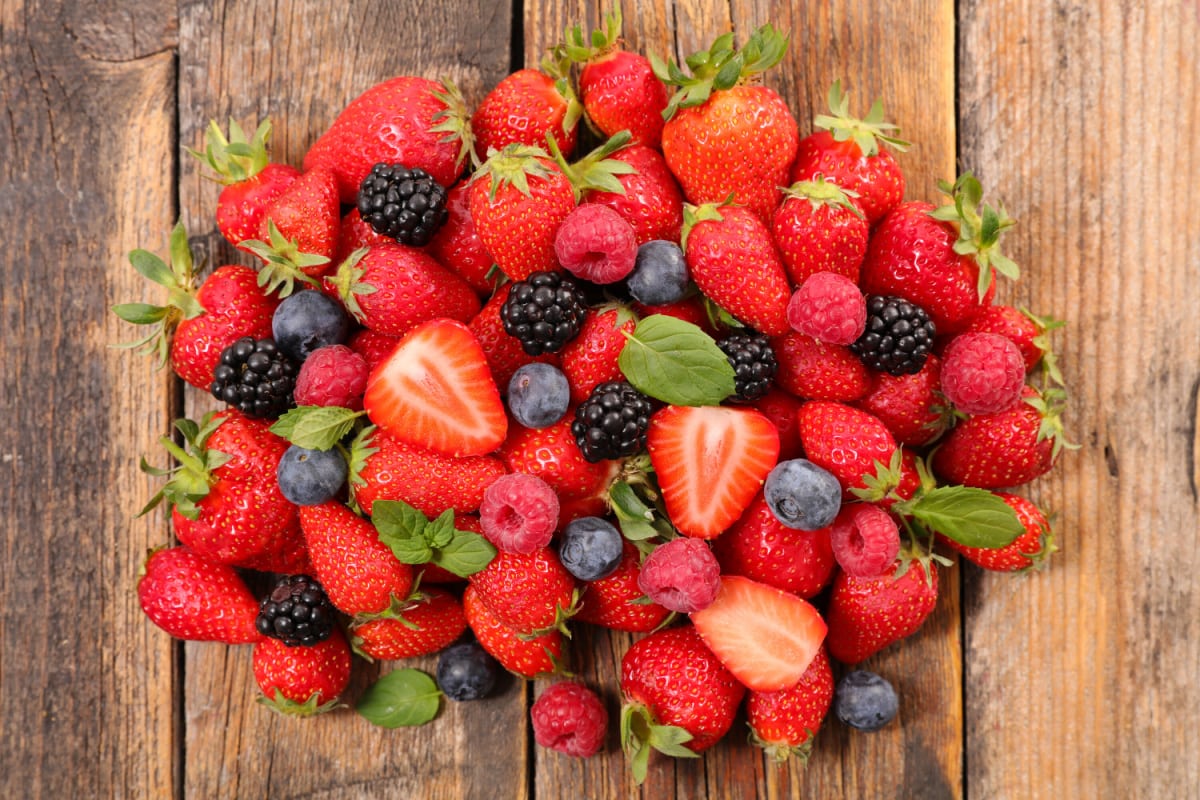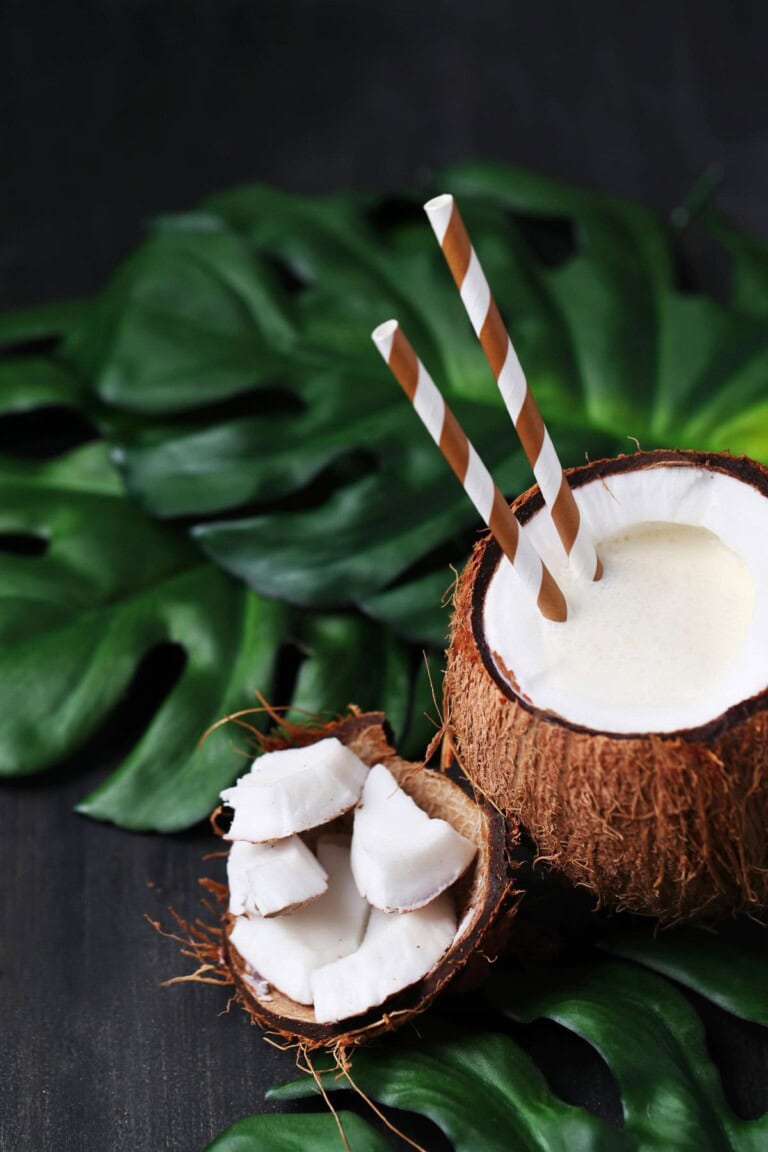Best Fruits for Heart Health
It’s not too late to start eating more fruit if you’ve been skimping on it for the most of your life. Doing so will help to maintain the health of your heart. So what are the best fruits for heart health?
Also see the Best Fruits for Diabetics!
Best fruits for heart health:
Fruit might be the best creation of nature. Each day, consume one to two cups of fruit. Especially if your heart health is a problem, it’s imperative that you consume this amount of fruit each day.
An eight-week fruit-rich diet was found to improve blood indicators that measure cardiac strain and damage. Here are some best fruits for cardiovascular health:
Berries:
Fresh berries are worth eating all year long, despite being the unofficial summertime mascot. Anthocyanins, a type of antioxidants that gives blueberries and other berries their deep reds, purple and blue hues, are one of the main heart-protective components in berries.
Since berries are high in antioxidants like anthocyanins, which help guard against inflammation and oxidative stress that may contribute to the development of cardiovascular disease, berries are beneficial for heart health.
All berries contain elements that are good for the heart, but a lot of research has shown that blueberries are particularly effective at preventing heart disease.
One cup of blueberries per day over a period of six months was linked to a 17 percent lower chance of developing heart disease.
Orange:
This citrus fruit is a great champion in the field of heart-healthy fruits, since research has shown that orange flavonoids contain potent anti-inflammatory and antioxidant properties.
Oranges are a fruit that also contains potassium and fiber, similar to the other fruits on this list. Analyze oranges for those with tiny navels. A big navel indicates a ripe fruit.
Watermelon:
Without adding delicious watermelon to snack on, no heart-healthy diet is perfect. Citrulline, an amino acid found naturally in watermelon, may promote blood vessel dilatation, which in turn supports normal blood pressure.
Nitric oxide, a substance that aids in widening blood vessels and lowering blood pressure, is preceded by citrulline.
The antioxidant lycopene, which gives a slice of watermelon its lovely red color, is another significant component found in watermelon.
Watermelon is a significantly better source of lycopene than tomatoes, which is what most people usually connect with it.
10 to 14 milligrams of lycopene are present in just one cup of watermelon. Free radical damages that could otherwise result in heart disease may be lessened with the use of lycopene.
Grapefruit:
Start serving grapefruit to get your regular dose of vitamin C, fiber, and potassium. Grapefruit provides 3 grams of fiber per serving, or about 8% of your daily requirement.
In addition, women who regularly consumed grapefruit or its juice had greater levels of “excellent” HDL cholesterol, decreased amounts of triglycerides, and were lighter in weight.
When buying, try to find a grapefruit that feels bouncy to the touch and substantial for its size. Store it in the refrigerator at home, but eat it warm or at room temperature rather than cold for a juicier fruit.
Before using grapefruit in your diet plan, keep in mind that it may interact with some prescribed medications. Consult a physician first.
Peach:
For a boost of beta-carotene, use yellow peaches. Higher blood levels of beta-carotene in men were associated with a lower risk of heart disease and stroke death.
In addition, peaches include potassium, fiber, and the vitamins C, E, and K. Look for fruits that have a rich, sweet aroma and hardly give to touch.
How do fruits help with cardiovascular diseases?
So fruits lower the risk of heart disease, but how? Well, here are some of the factors in fruits that help in lowering the risk of developing cardiovascular diseases:
Fiber:
Fiber help in lowering cholesterol, and reduce risk of cardiac diseases. Insoluble fiber content found in the whole grains, and seeds helps to control your digestion.
Pectin, a particular type of fruit fiber found in the skins of apples and citrus fruits, is also linked in some research to anti-inflammatory and antibacterial qualities that are linked to a healthier stomach and heart.
Vitamins:
Their normal diet can provide them with enough nutrients, and fruits are one of the best food sources for vitamins.
Before making any changes, make sure to verify with your doctor if you are taking vitamin pills as prescribed.
In addition to antioxidant vitamins like E and A, which have long been researched as potential means of enhancing general health, several vitamins also have particular heart-healthy qualities.
Iron:
Iron is required by your body to produce and circulate healthy blood because it is critical for carrying oxygen.
Heart disease has been linked to iron shortage, but too much iron can also lead to a buildup of plaque in the arteries.
Polyphenols:
Polyphenols’ antioxidant and anti-inflammatory characteristics can help control cholesterol, decrease blood pressure, and strengthen the heart’s lining.
Carotenoids:
Brightly colored antioxidants found in fruits called carotenoids are another class of molecule with antioxidant capabilities that boost the impact of micronutrients in the bloodstream.
Other related health articles:
- How To Avoid Processed Foods?
- Eating Healthy On A Budget
- Benefits of Nature
- Are Cashews Good For You?
- Tips For Better Mental Health
If you enjoyed this post about the Best Fruits for Heart Health and would love to see more, join me on Youtube, Instagram, Facebook & Twitter!
Get discounted copies of my cookbook here.
Fortunately, because of the ads on our website, readers and subscribers of Healthier Steps are sponsoring many underprivileged families.[-












I love these fruits , thank you for this article